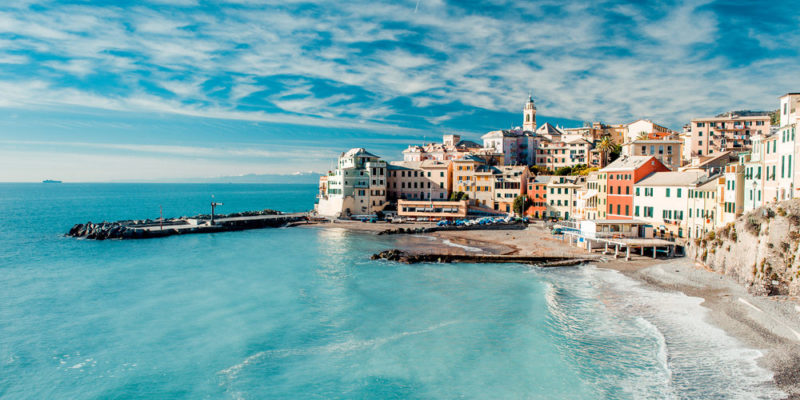The Mediterranean Sea, often associated with luxurious vacations, beautiful beaches, and delicious seafood, is facing a severe pollution problem that could have serious consequences for both tourists’ health and local inhabitants. Despite its stunning landscape, the Mediterranean waters are becoming increasingly toxic due to the significant presence of microplastics and other harmful pollutants.
According to a July 2024 report from the World Wide Fund for Nature (WWF), more than 87% of the Mediterranean Sea’s surface is contaminated with microplastics and industrial pollutants. These pollutants include heavy metals and toxic chemicals that accumulate along the marine food chain and can affect human health. The Mediterranean extends from the Atlantic Ocean to the coasts of Africa, Europe, and Asia, and this vast region is becoming a battleground against pollution.

Water pollution is globally linked to approximately 1.4 million premature deaths per year, posing a significant threat to the roughly 150 million people living along the Mediterranean coast. Additionally, about 270 million tourists are drawn to the region annually, increasing pressure on already overburdened marine ecosystems.
The Mediterranean Sea spans around 46,000 kilometers of coastline across 22 countries, each with different environmental standards and practices that impact water quality. Among the largest contributors to Mediterranean plastic pollution is Egypt, which dumps approximately 250,000 tons of plastic into the sea annually. Following Egypt are Turkey, with 110,000 tons, and Italy, with 40,000 tons. These alarming figures highlight that there are about 1.9 million plastic fragments per square meter in the region.
Therefore, when considering a trip to the Mediterranean, it is essential to be aware of the environmental and health issues associated with these waters. Protective measures and awareness of environmental impact are crucial to mitigating risks and preserving the natural beauty of this famous tourist destination.
Experts consulted for the WWF report warn that humans can ingest microplastics through the consumption of marine organisms and water, both tap and bottled.
The report highlights that by consuming three main species of commercial fish (sea bass and two types of mackerel), a person could ingest over 840 microplastics per year. The intake of bivalves, such as mussels and clams, can raise this number to up to 11,000 microplastics annually. However, contamination is lower when consuming shrimp.
Additionally, when considering exposure to air and food from non-aquatic environments, the daily ingestion of microplastics could exceed 100,000 particles.
In Ostia, a coastal city near Rome, Pierluigi Capozzi, owner of a restaurant called Mediterraneo, watches the sea with concern. “Fifty years ago, people didn’t have the knowledge we have today about pollution and plastics,” he commented. “Yet, I see young people throwing plastic bottles into the sea, littering the ground with cigarette butts and other waste.”
He still sees a silver lining in the situation. A decade ago, every morning, the sand in front of his seaside restaurant was covered with chemicals dumped by cargo ships crossing the visible navigation routes off the coast. “Thanks to more effective regulations, this chemical pollution has been eliminated,” he states.
The Mediterranean is one of the largest reservoirs of marine and coastal biodiversity in the world, according to the Med Sea Alliance, an organization promoting sustainable fishing practices.
The Med Sea Alliance highlights that pollution has harmful effects on marine flora and fauna. Despite accounting for only 0.7% of the global oceanic area, the Mediterranean hosts 7.5% of the world’s marine fauna and 18% of its marine flora.
Fishing is a €4.6 billion (approximately $5 billion) industry in the Mediterranean region. Water pollution directly affects the 180,000 workers who rely on fishing for their livelihood, according to the WWF.
Additionally, the UN Environmental Program reports that marine catches in the Mediterranean have decreased by 34% over the past 50 years due to overfishing and the presence of plastics in the water.
The group reports that around 730 tons of plastic waste are dumped daily into the Mediterranean Sea. This plastic waste represents between 95% and 100% of floating marine debris and 50% of the debris found on the seabed. In terms of tonnage, plastic may even outweigh fish stocks.
A 2023 study by the Archipelago Institute of Marine Conservation in Greece analyzed 25 marine animals, including eight dolphins, two monk seals, and 15 sea turtles, and found microplastic pollutants in all of them.
Among other types of plastic, a total of 10,639 microplastic fibers were detected in the gastrointestinal tracts of the marine mammals and turtles analyzed, the study reveals.
Raffaele Marfella, an advanced science professor at Vanvitelli University in Naples, states that plastic pollution is an urgent global problem that goes beyond environmental damage, seriously affecting the health and survival of marine species.
Citing a recent article published in the New England Journal of Medicine, he highlights the relationship between microplastics and nanoplastics, known as MNPs, and certain cardiovascular diseases.
“Current knowledge indicates that MNPs can enter the bloodstream through ingestion or inhalation, provoking inflammation and oxidative stress. Over time, chronic exposure to these pollutants can accelerate the development of atherosclerosis and increase the risk of cardiovascular events,” the article states.
Plastic pollution is considered a “permanent” pollutant, meaning that once introduced into the environment, it remains indefinitely.
Francesco Pacelli, a beachgoer, expressed his frustration upon seeing people leaving trash and bottles by the water’s edge. “It’s very important to keep the beach clean; the water looks more beautiful,” he comments. “In my opinion, it is crucial, especially for fish and animals, which face the problem of floating plastic.”
If no behavioral change occurs to combat water pollution, dream vacations in the Mediterranean could quickly turn into a nightmare.

